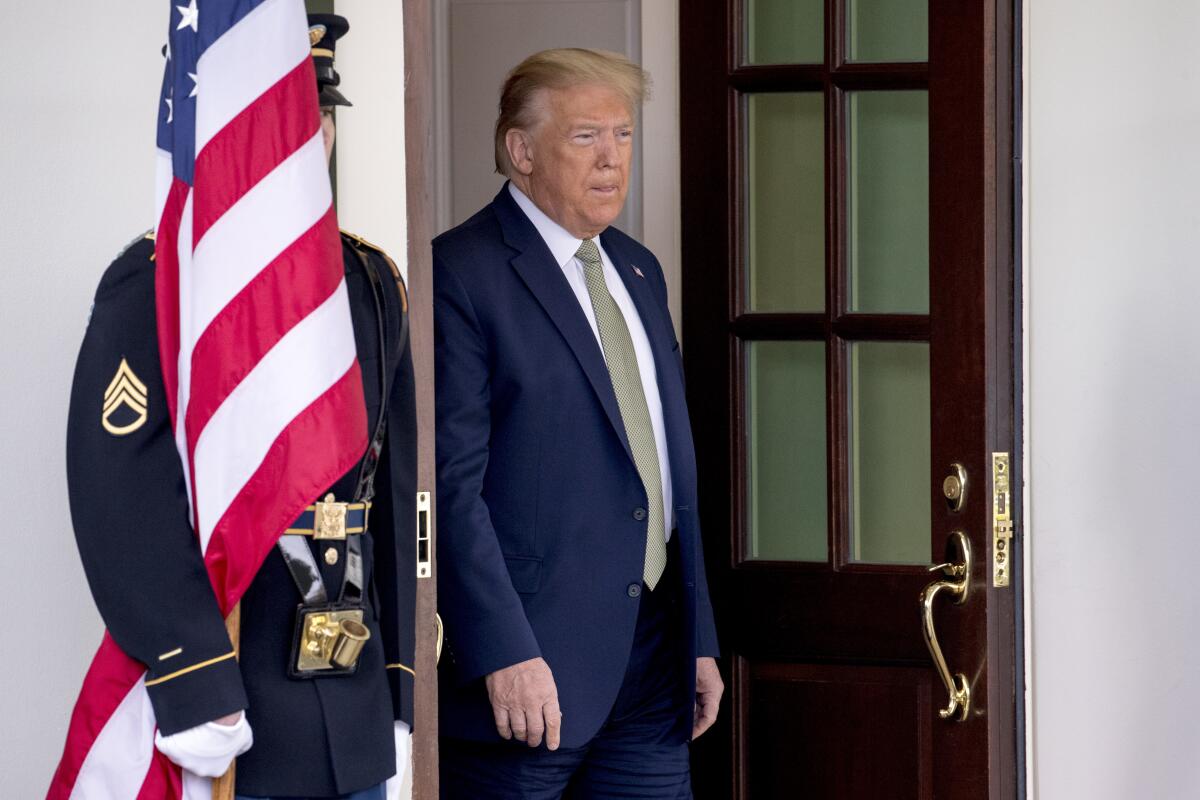Editorial: A bipartisan compromise would reform surveillance. Trump should be willing to sign it

Almost seven years after former National Security Agency contractor Edward Snowden revealed that the government was scooping up a vast quantity of Americans’ telephone records, the House has approved bipartisan legislation that would finally end that sort of intrusive surveillance. The legislation passed Wednesday, which reauthorizes some provisions of the Foreign Intelligence Surveillance Act, also introduces important new privacy protections.
For example, it would impose greater accountability for officials who wiretap Americans suspected of acting as agents of a foreign power. That’s an appropriate response to concerns raised by the Justice Department’s inspector general about the surveillance of Carter Page, a former advisor to President Trump’s campaign, as part of the FBI’s investigation of Russian interference in the 2016 election.
Yet the Senate so far has failed to act on the bill, meaning that several provisions will expire on Sunday. That would mean an end not only to the government’s authority to obtain “business records” including phone records, but also provisions that deserve to be extended and have bipartisan support. Among them are ones granting federal investigators authority to seek court orders for “roving” wiretaps (aimed at an individual rather than a telephone number) and for surveillance on “lone wolf” terrorists not linked to an organization.
The Senate could belatedly approve the legislation this coming week or punt by approving a 45-day extension of current law, forgoing the reforms in the House-passed bill. Much will depend on signals from the Trump administration. Although Atty. Gen. William P. Barr has endorsed the legislation, Trump tweeted this on Thursday: “Many Republican Senators want me to Veto the FISA Bill until we find out what led to, and happened with, the illegal attempted ‘coup’ of the duly elected President of the United States, and others!”
It would be ridiculous to hold surveillance reform hostage to confirmation of Trump’s fantasies about an attempted coup by the FBI. The same inspector general who found fault with the way the surveillance of Page was approved also concluded that the investigation into possible ties between Russia and the Trump campaign was properly undertaken, and that there was no evidence of political bias.
The most important reform in the House bill is the abolition of the so-called “call detail records” program, a successor to the program revealed by Snowden in which the NSA collected massive amounts of information about the source, recipient and time of telephone calls or text messages — information that potentially could reveal details about a telephone customer’s habits and associations.
In 2015 Congress passed the USA Freedom Act, which scaled back the program but allowed the government to seek approval to search phone records maintained by telecommunication companies. But the revamped program proved difficult for the NSA to enforce without collecting records of phone calls and text messages that were supposed to be off-limits, As a result, the agency announced in 2018 that it was deleting all of the records it had accessed since 2015. Moreover, questions have also been raised about the program’s effectiveness in detecting terrorist plots. Earlier this year the Privacy and Civil Liberties Oversight Board told Congress that the program led to only one significant investigation.
The House-passed bill would end the ability of investigators to obtain phone records “on an ongoing basis,” while extending the authority for more useful surveillance tools and introducing new privacy protections. While it isn’t perfect, the legislation would represent a major improvement over the status quo. The Senate should approve it and Trump should sign it.
More to Read
A cure for the common opinion
Get thought-provoking perspectives with our weekly newsletter.
You may occasionally receive promotional content from the Los Angeles Times.










